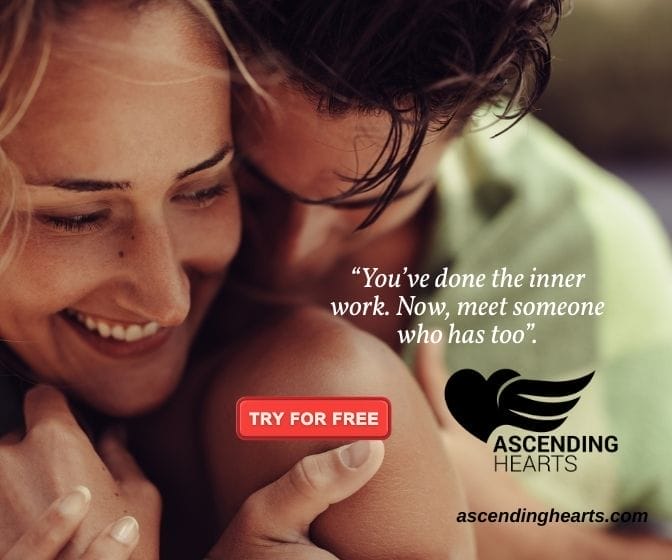Face the Truth About Your Bad Relationship

Are you stuck in a bad relationship because you do not want to admit to yourself that it is toxic for you?
The Bad Relationship: How Honest are You with Yourself?
How honest are you in admitting you are in a bad relationship? Are you one of those people who finds it really hard to see the bad in others? Do you need to believe that everyone in your life is a good person and can’t imagine that someone you love or respect could be capable of cruelty, manipulation or thoughtlessness? Do you always give the other person the benefit of the doubt?
If this is you, you’re setting yourself up to be hurt. People who refuse to accept that others are capable of bad are extreme idealists. They’re overly attached to values like honesty, integrity, and decency. They think that if they’re not capable of behaving badly, others couldn’t possibly be, either, and so enter into one bad relationship after another.
I’ve lost track of the number of times a patient has begun telling me a story of how their spouse, friend or boss had been hurtful to them and then finished by saying, “I can’t believe they treated me this way. I don’t understand it!” Like the above-mentioned idealists, these patients had too-high expectations of the people in their lives and were constantly encountering disappointment.
I’ve noticed that when someone has trouble facing the truth about hurtful people, it’s not just because they have an overly-optimistic view of human nature.
They’re sensitive souls who find it too painful to believe that others can behave badly, so they’d rather not know.
This type of denial has its roots in early-life hurts or losses. In fact, those who’re afraid to see others as capable of bad behavior often have a history of painful experiences in their own childhood.
Children can’t accept that their parents or guardians could be cruel or neglectful. It’s too overwhelming to recognize that the people who’re supposed to love them, care for them and protect them actually might be letting them down.
As adults, they maintain their denial. Their childhood experiences of loss or disappointment left them feeling especially vulnerable. Any disappointment in the present day is unbearable, so they resist seeing the truth about the people in their adult lives.
The reality, however, is that people are indeed, capable of bad behavior. Some of these hurtful individuals are angry because of their own childhood trauma and they take out their pain and frustration on others.
Some people have no conscience, no sense of responsibility, empathy or remorse. These individuals are deliberately cruel. Then there are the well-meaning people who are inadvertently hurtful, and those who don’t care enough to do the right thing.
Whatever the cause, hurtful people engage in all sorts of bad behavior, ranging from minor insensitivity to outright sadism. Denying this truth about human nature will lead to many difficulties.
For example, there’s the mother who refuses to believe that her husband is capable of molesting his daughter and therefore turns a blind eye, essentially perpetuating the abuse.
There’s the employee who insists that his boss is fair-minded and that all his hard work, loyalty, and self-sacrifice will be rewarded, when in fact he’s being exploited.
There’s the husband who risks his marriage when he repeatedly fails to protect his wife from his mother’s constant criticisms, telling her instead, “Oh, that’s just the way Mom is.”
There’s the woman who refuses to believe that her husband is capable of two-timing her, and the man who’s constantly lending money to his freeloading buddy because he needs to see him as a “good guy.”
There’s the girl who agrees to have unprotected sex with her brand-new boyfriend because she wants to think she can trust him, and the man who hands over his entire life savings to a financial adviser, convinced that this person will invest his money wisely.
If you deny the possibility that someone could be hurtful, you put yourself and your loved ones at great risk. Facing this truth, on the other hand, is empowering and will enable you to make the kinds of choices which will give you a better life.
When people are inadvertently hurtful, calling them on their behavior affords them the opportunity to make amends and change their ways. When people are deliberately hurtful or just don’t care, confronting them will bring out defensiveness or hostility and reveal their true nature.
Denying other people’s capacity for cruelty or thoughtlessness ultimately serves to perpetuate it. Acknowledging that hurtful people do exist will empower those who’ve been hurt to take much better care of themselves and their loved ones in the future.
Facing the truth about a bad relationship will allow those on the receiving end of bad behavior to do what they couldn’t as children: assert themselves, defend themselves or walk away from relationships which are neglectful or abusive.
It may be disappointing and disillusioning to face the truth about someone’s hurtful actions, but it will prevent a lot of unhappiness, now and in the days to come.
You will also enjoy Facing the Truth About Hurtful People
About the Author
Marcia Sirota MD FRCP(C) is a board-certified psychiatrist, that does not ascribe to any one theoretical school. Rather, she has integrated her education and life experiences into a unique approach to the practice of psychotherapy. She considers herself a realist with a healthy measure of optimism. Sign up here for her free monthly wellness newsletter.
Dr. Marcia Sirota is a Toronto-based board certified psychiatrist specializing in the treatment of trauma and addiction, as well as founder of the Ruthless Compassion Institute, whose mandate is to promote the philosophy of Ruthless Compassion and in so doing, improve the lives of people, everywhere.





This is a really hard, but very necessary lesson. It takes time to reconcile that someone you love is actually hurtful to you, or to your other loved ones. It can be monumental to change your “truth” about that person, to change the way you think and feel about them.
However, once you do, it is amazingly freeing! Once you get past the greatest hurt of all, letting go of what you believed to enable yourself to believe the truth, you can disconnect, and be free of any control the false beliefs held over you.
You are empowered to help – either with kind words or with support of everyone else being hurt.
One step at a time – this can be a long road – but well worth the trip!
Ellen
This is why one needs to get to know a significant other really well, before initiating romantic heat. I know it’s a tough course to take, but a better one, than waiting for the inevitible somewhat romantic cool down to occur. Then we often discover that we don’t really know the other, and their deficits. It’s wise to first find out if our prospective mate was abused in any way as a child. If so, have they sought a way to heal this issue? If not, remember the abused, invariably become the abusers. The “dirty laundry” behavior list is long. These often withheld facts, need to be exposed, and more likely will be revealed, given time to get to know eachother before roamantic fusion occurrs.
If any of you have been a victim of such abuse, and haven’t dealt with it, then you may more likely connect with someone who also hasn’t. Why? Because ultimatley like attracts like, on the emotional level.